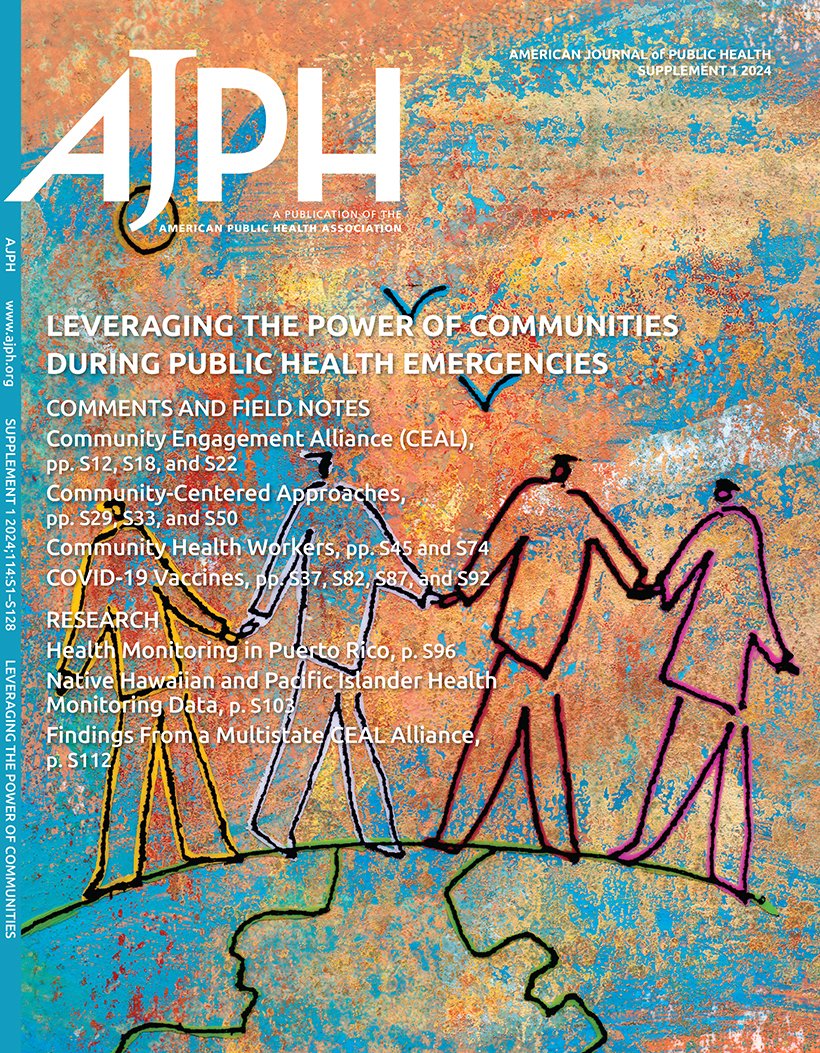2018-2023年美国原发性和继发性梅毒女性药物使用行为趋势研究
IF 9.6
1区 医学
Q1 PUBLIC, ENVIRONMENTAL & OCCUPATIONAL HEALTH
引用次数: 0
摘要
目标。研究美国原发性和继发性(P&S)梅毒妇女药物使用的最新趋势。方法。我们回顾了2018年至2023年通过国家法定疾病监测系统发送给疾病控制与预防中心的15岁及以上妇女和女孩梅毒病例通报。我们按年份、种族/民族和地区计算了过去一年中与药物使用有关的行为(醉酒或吸毒时发生性行为、与注射毒品的人发生性行为或使用甲基苯丙胺)的百分比。结果。我们的分析包括51 209例梅毒病例。大多数妇女和女孩(86%)处于生育年龄。这些行为在时间和区域上都是稳定的,但甲基苯丙胺的使用在西部最高(30%)。所有这些行为在非西班牙裔白人女性中比在非西班牙裔黑人或西班牙裔女性中更常见。结论。尽管经常报告药物使用行为,但趋势是稳定的,这表明报告这些行为的妇女比例与最近全国妇女中梅毒的增加无关。对育龄妇女和女孩进行普遍梅毒筛查,可作为减少她们中梅毒以及包括先天性梅毒在内的不良后果的一种选择。公共卫生。2025年9月11日提前在线发布:e1-e9。https://doi.org/10.2105/AJPH.2025.308254)。本文章由计算机程序翻译,如有差异,请以英文原文为准。
Examining Trends in Substance Use Behaviors Among Women With Primary and Secondary Syphilis: United States, 2018-2023.
Objectives. To examine recent trends in substance use among women with primary and secondary (P&S) syphilis in the United States. Methods. We reviewed case notifications sent to the Centers for Disease Control and Prevention via the National Notifiable Diseases Surveillance System for women and girls aged 15 years and older with P&S syphilis from 2018 to 2023. We calculated percentages of behaviors associated with substance use during the past year (having sex while intoxicated or high, having sex with a person who injects drugs, or methamphetamine use) by year, race/ethnicity, and region. Results. Our analysis included 51 209 P&S syphilis cases. Most women and girls (86%) were of reproductive age. Behaviors were stable temporally and regionally, but methamphetamine use was highest in the West (30%). All behaviors were reported more frequently among non-Hispanic White women than non-Hispanic Black or Hispanic women. Conclusions. Although substance use behaviors were frequently reported, trends were stable, indicating that the proportion of women reporting these behaviors did not scale with recent national increases in P&S syphilis among women. Universal syphilis screening of reproductive age women and girls could be evaluated as an option to reduce syphilis among them along with adverse outcomes, including congenital syphilis. (Am J Public Health. Published online ahead of print September 11, 2025:e1-e9. https://doi.org/10.2105/AJPH.2025.308254).
求助全文
通过发布文献求助,成功后即可免费获取论文全文。
去求助
来源期刊

American journal of public health
医学-公共卫生、环境卫生与职业卫生
CiteScore
9.50
自引率
3.90%
发文量
1109
审稿时长
2-4 weeks
期刊介绍:
The American Journal of Public Health (AJPH) is dedicated to publishing original work in research, research methods, and program evaluation within the field of public health. The journal's mission is to advance public health research, policy, practice, and education.
 求助内容:
求助内容: 应助结果提醒方式:
应助结果提醒方式:


